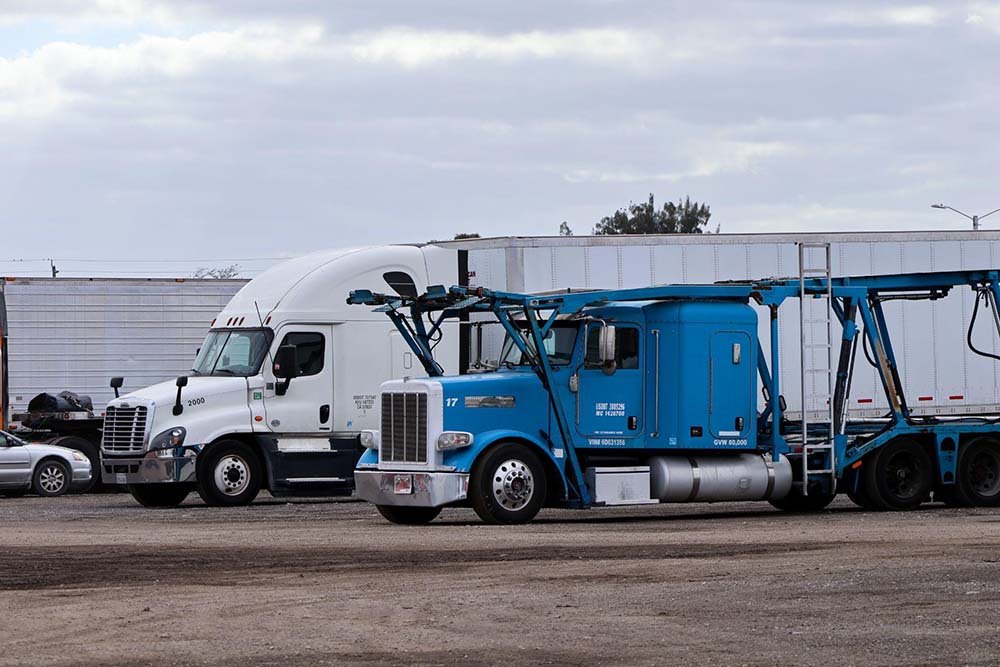In a world where demand for goods and services is growing daily, it has become essential for these industries to have smooth transportation from one place to another. To make it easier for you, there are two most important players in this trucking industry: truck brokerage and solo dispatchers. Both have different approaches to facilitating the movement of goods.
We know the terms might be slightly confusing, but after reading this guide, you’ll learn everything you need to know about them. So, let’s begin with this guide and tell you about the critical differences between these two entities, shedding light on their roles, functions, and advantages to shippers and carriers.
Difference By Definition & Function
Truck Brokerage: Bridging the Gap
The concept of truck brokerage plays an essential role in the logistics sector. Truck brokerage, often referred to as freight brokers or third-party logistics (3PL) providers, act as intermediaries connecting shippers with carriers. Their primary task shall be to assist in the smooth transmission of goods by considering the shipper’s needs and availability of available carriers.
Moreover, they ensure that cargo is efficiently and economically delivered to their destination. They will bring together extensive networks, technical capabilities, and industry expertise. Truck Brokerage companies are registered legally and must be certified by the Transportation Intermediaries Association (TIA). These aspects provide shippers the confidence of doing business with a company with legal and financial support.
Solo Dispatcher: A Singular Effort
In comparison with truck brokerage, the solo dispatcher is an individual, most of the time is not a company legally registered, who takes on the role of coordinating shipments exclusively for carriers. Operating independently or in a small team, solo dispatchers manage a limited number of carriers.
Unlike truck brokerage companies that have a wide network of contacts with shippers and daily loads to transport, dispatchers work for a truck driver or an owner-operator and must actively search for loads because the income of trucking companies depends on it.
When we talk about their responsibilities, they encompass the assignment of loads to carriers, vigilant monitoring of delivery progress, and the swift resolution of any challenges that may arise during transit.
Licensing and Regulation
Truck brokerages operate in a complex regulatory environment in the United States, mainly governed by the Federal Motor Carrier Safety Administration FMCSA. They need to have the broker’s license, prove financial responsibility, and keep an insurance bond or a trust fund for possible liabilities if they wish to operate legally. These complex rules ensure that truck dealers bear the financial responsibility for their transactions and are obliged to comply with them.
On the other hand, single dispatchers are not subject to the same strict rules as freight broker companies. Due to the typical small scale of their activities, they do not necessarily require a license or bond equivalent to that of stockbrokers. Nevertheless, single dispatchers must understand the applicable State and Federal rules, mainly when conducting interstate transport operations.
Network and Resources
One of the standout advantages of partnering with a truck brokerage company is access to an extensive network of carriers and shippers. These brokers maintain a comprehensive database of prequalified carriers, enabling them to match consignments with suitable capacity as soon as possible. Their investment in advanced logistics technology, such as Transportation Management Systems (TMS), ensures streamlined operations and real-time visibility into shipments, providing a high level of service.
However, single dispatchers typically operate within a more limited network of carriers, because their primary role is to seek out loads and ensure that the carriers they work with are covered, and their trailers are never empty. They often lack a wide variety of loads options because they do not have the administrative capacity to establish relationships with small and medium enterprises (SMEs) that would provide consistently loads.
Moreover, the same technology tools and resources may not be available to sole dispatchers in a way that would affect their ability to handle or monitor shipments effectively.
Liability and Risk Management
In the case of deliveries, truck brokers are held responsible to a large extent. They shall ensure that carriers have adequate insurance coverage, verify carrier identity, and deal with any claims or disputes arising during transport. As these brokers will bear financial responsibility for problems that might occur during the transit period, this liability provides a guarantee to shippers.
But, there may be less formal risk management procedures for individual dispatchers. Shippers and carriers must thoroughly review contracts and agreements with single dispatch agents to identify the extent of liability insurance and dispute settlement processes. While individual dispatchers may be covered by insurance, it is essential to note that coverage can vary widely.
Cost Structure
Truck brokerages typically employ a commission-based fee structure, where their compensation is calculated as a percentage of the total transportation cost. This fee structure grants shippers access to the broker’s network and expertise without imposing significant upfront costs. However, shippers must diligently understand the broker’s fee structure and engage in rate negotiations.
In the case of solo dispatchers, however, their pricing structure is often more flexible. They can charge carriers a fee to find and coordinate the loads, or they may determine compensation in accordance with a fixed rate or percentage of transport costs. It is common for pricing arrangements between a single dispatcher and the carrier to differ significantly and be subject to negotiation.
Different Skills Offered By Them!
In addition to these core differences, it’s worth noting that truck brokerage and solo dispatchers bring distinct skill sets to the table:
Truck Brokerage Skills
- Extensive industry knowledge
- Advanced technology and tools
- Network optimization
- Negotiation expertise
- Compliance management
- Cost-effective management
- Logistics solutions tailored to your business needs.
Solo Dispatcher Skills
- Personalized service
- Strong carrier relationships
- Agility and adaptability
- Lower overhead costs
- Potential for cost savings
Conclusion
Now, after reading this guide on the difference between truck brokerage companies and single dispatchers, you better understand the difference between them. Therefore, choosing a truck brokerag company is much safer to reduce risks. The dispatcher profession is one of the less regulated jobs in the US and can potentially be exploited for malicious purposes.
But it all depends on your convenience and budget. So, do proper research before hiring and working with them, and choose the best for your business.
















